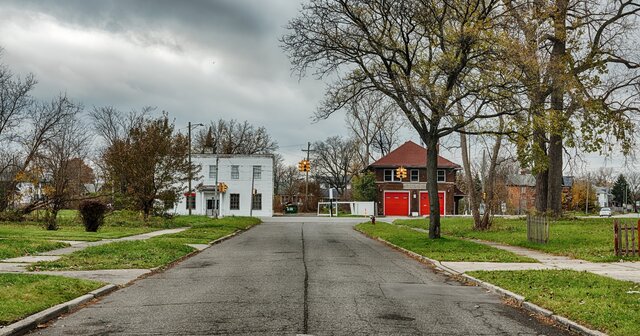

This article originally appeared in The Detroit News May 29, 2025.
Is Michigan in for a tax hike in 2025? It will be if state Democrats get their way.
Michigan Democratic lawmakers are trying to figure out what tax they should raise in order to fund roads. They’ve proposed hiking Corporate Income Taxes, marijuana taxes and trash taxes. They also have recommended new taxes on digital services and nicotine vaporizers.
House Republicans, on the other hand, passed a proposal that spends more on roads without raising taxes. It takes money away from the state’s ineffective business subsidies and directs it toward road repair.
Astute political observers should have a sense of déjà vu. This looks an awful lot like the debate lawmakers had in 2019. Gov. Gretchen Whitmer wanted to raise taxes — any of the taxes — by $2.5 billion to spend $1.9 billion on roads and the rest on other government services. The Republican majority Legislature instead found $400 million for roads without raising taxes. The governor vetoed the extra money, and the dispute left the state with less road funding.
The debate this year is again whether lawmakers need to raise taxes or whether they can find money within the budget for extra road funding. While it may result in the same outcome as the 2019 dispute, things have changed in the past six years, and those changes should matter.
Michigan taxes generate a lot more revenue for state government than they used to, and lawmakers spend more than they used to. The state portion of the budget, excluding federal transfers, has increased from $34.4 billion in fiscal year 2018-19 to $46.8 billion this year. That is an 8.3% gain above even the elevated inflation levels we’ve seen in the past few years. Lawmakers shouldn’t raise taxes when they already have more money.
Lawmakers also don’t need to raise taxes when they’re already wasting so much taxpayer money. Elected officials authorized $4.7 billion in business subsidies over the past two years, and they’ve authorized $3 billion in district grants. All of that money would have been better spent on roads.
Letting legislators determine which projects in their districts get funded is an inappropriate use of the state budget. State lawmakers are supposed to care more about what benefits the public more than about the narrow interests of their district. Spending money on road funding also puts more money back in legislators’ districts.
State business subsidies, by contrast, have been a waste of money. The deals to trade taxpayer cash for jobs rarely work out. They turn out just 9% of the jobs promised when deals are made. The money for failing deals could have stronger economic effects if spent elsewhere.
Lawmakers clearly have the funds available to fix roads faster than they fall apart. They don’t have to hike corporate income taxes.
That’s why lawmakers ought to go with the House Republican plan. It recognizes that business subsidies could be better spent elsewhere. The state budget has grown, and that means lawmakers can fix roads faster than they fall apart.
It takes compromise to get a deal with divided government. But one side should not insist that a deal requires higher taxes when the state doesn’t need the extra money to get to the goal.
Permission to reprint this blog post in whole or in part is hereby granted, provided that the author (or authors) and the Mackinac Center for Public Policy are properly cited.
Get insightful commentary and the most reliable research on Michigan issues sent straight to your inbox.

The Mackinac Center for Public Policy is a nonprofit research and educational institute that advances the principles of free markets and limited government. Through our research and education programs, we challenge government overreach and advocate for a free-market approach to public policy that frees people to realize their potential and dreams.
Please consider contributing to our work to advance a freer and more prosperous state.

Donate | About | Blog | Pressroom | Publications | Careers | Site Map | Email Signup | Contact